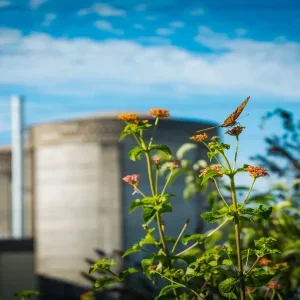
BHP is seeking to introduce LNG-fuelled bulk carriers in its maritime supply chain to transport up to 27 million tonnes of its iron ore in order to reduce its carbon footprint.
In this regard, the mining giant has issued a tender to provide LNG-fuelled ships. The company believes that the new bulk carriers will eliminate the emissions of NOx (nitrogen oxide) and SOx (sulphur oxide), while significantly cutting down CO2 emissions along the busiest bulk transport route in the world.
BHP maritime and supply chain excellence vice president Rashpal Bhatti said: “We recognise we have a stewardship role, working with our customers, suppliers and others to influence emissions reductions across the full life cycle of our products.
“Through this tender, we are seeking potential partners who share our ambition of lowering emissions to the maritime supply chain.”
Tender for the LNG-fuelled bulk carriers
The mining giant said that the tender is open to a select group of industry leaders, from ship owners, LNG fuel network providers, and banks. It further said that the tender apart from seeking LNG-fuelled transport for up to 10% of its iron ore , is also calling for other innovative solutions that can reduce greenhouse gas emissions and boost productivity from the freight requirements of the company.
Bhatti said: “While LNG may not be the sustainable homogenous fuel of choice for a zero carbon future, we are not prepared to wait for a 100% compliant solution if we know that, together with our partners, we can make significant progress now.”
Last month, the mining giant signed an agreement with Mitsubishi Development to collaborate in the pursuit of reducing emissions. In this connection, the two companies are reviewing opportunities to take up research, pilot new ideas, and develop and deploy new technologies for emissions reduction.
Recently, BHP said that it is working with vessel owners to make the vessels it hires fully compliant. The mining giant charters transport for 250 million tonnes of product every year.
In March 2019, the company made an equity investment in Carbon Engineering, a Canada-based company engaged in the development of Direct Air Capture, a technology aimed at delivering large-scale negative emissions by eliminating carbon dioxide from the atmosphere.






